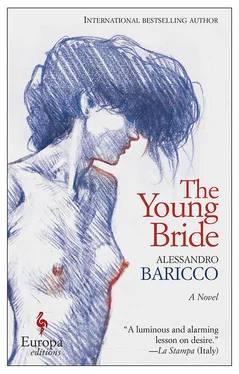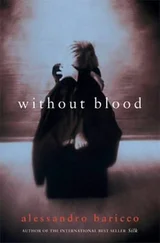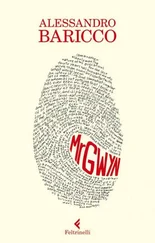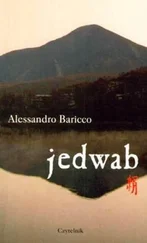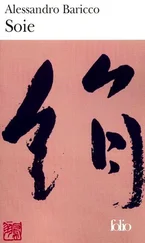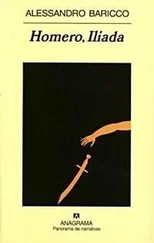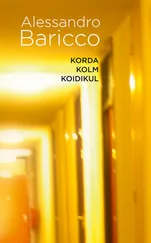The young Bride went to settle her eighteen years in the place that seemed to her most appropriate and least illogical. The result of such a mental operation may appear surprising now, but it should be remembered that never for an instant, dwelling in the abstract world of the Family, had that girl stopped learning. So now she knew that there are not many destinies but a single story, and that the only exact gesture is repetition. She wondered where she should wait for the Son, sure that he would return, and where the Son would return, sure that she would wait for him forever. She had no doubts about the answer. She appeared at the brothel, in the city, and asked if she could live there.
It’s not exactly a job that you can learn in a day, said the Portuguese Woman.
I’m not in a hurry, said the young Bride. I’m waiting for someone.
When she had been earning her living for almost two years in that way, someone sent for her in the middle of the night. She was in a room with a Russian traveler — a man around forty, very nervous and unusually well brought up. The moment she touched him for the first time, the young Bride had understood that he was a homosexual and didn’t know it.
In reality they know it perfectly well, the Portuguese woman had once explained to her. It’s that they can’t dare to say it to themselves.
And so what do they expect from us? the young Bride had asked.
That we help them lie to themselves.
Then she had reeled off seven tricks to enable them to have pleasure and emerge at peace with themselves.
As the young Bride had later been able to observe repeatedly, the seven tricks were infallible: so she was moving elegantly toward the first when she was summoned. Since the unbreakable rule of the brothel was not to interrupt for any reason in the world the work of the girls, she realized that something special had happened. Yet she didn’t think of the Son. Not that she had stopped waiting for him or believing in his return. Rather: if she had had any remaining doubts, she had killed them all the day Comandini appeared at the brothel, without having himself announced. He had asked for her and introduced himself with his hat in his hand. They hadn’t seen each other for more than a year.
I would like to speak to you for a moment, he had explained.
The young Bride hated him.
The price is the same, she had said, if you just want to talk it’s your business.
So Comandini had paid a not negligible sum to sit with the young Bride, in a room with vaguely Ottoman furnishings, and tell her the truth. Or at least what he knew of the truth. He told her starting from when he had stopped getting news of the Son. He explained the whole business of the deliveries, starting with the two rams. He explained that in fact the Son’s last known act had been to buy a small cutter in Newport. He added that there was no news of his possible death, or of any accident that might have happened to him. He had disappeared into nothingness, and that was it.
The young Bride had nodded. Then she had summarized the whole thing in her own way.
Good. Then he’s alive and will return.
Then she had asked if she should take off her clothes.
It should unfortunately be noted that Comandini hesitated a long instant before saying No, thank you, getting up, and heading toward the door.
He was leaving when the young Bride stopped him with a question.
Why in the world did you send Don Quixote ?
I beg your pardon?
Why the hell, with all the books that exist, did you send Don Quixote ?
Comandini had to bring into focus a memory that evidently he hadn’t considered useful to keep within reach. Then he explained that he didn’t know much about books, he had just chosen a title he happened to see on the cover of a volume left in a corner in the Mother’s room.
In the Mother’s room? asked the young Bride.
Exactly, answered Comandini, with a certain harshness. Then, without saying goodbye, he left.
And so, as she walked along the corridor, wrapping a light cloak around her chest, the young Bride could have thought of the Son — she would have had reason to do so, and even desire. Yet, ever since an uncle consumed by fever had arrived in place of the man who gave a meaning to her youth, the young Bride had stopped expecting from life predictable moves. And so she merely let herself be led — her mind unburdened by thoughts, her heart absent — to the room where someone was waiting for her.
She went in and saw Modesto and the Father.
They were both dressed with flawless elegance. The Father was lying on the bed, the features of his face contorted.
Modesto gave two small coughs. The young Bride had never heard them before, but she understood perfectly. She read in them a studied mixture of dismay, surprise, embarrassment, and nostalgia.
Yes, she said, with a smile.
Grateful, Modesto bowed and moved away from the bed, taking the first steps backward and then turning around as if a gust of wind, and not an inconvenient choice, had decided for him. He left the room, and this book, without saying a word.
Then the young Bride approached the Father. They looked at each other. He was extremely pale, and his chest was jerking uncontrollably. He breathed as if he were biting the air, he couldn’t control his eyes. He seemed to have aged a thousand years. He gathered all the energy he still had available and uttered, with a great struggle and unsuspected firmness, a single sentence.
I will not die at night, I will die in the light of the sun.
Instinctively, the young Bride understood everything and looked up at the window. Only darkness filtered through the half-closed blinds. She turned to check the time on the clock that in that room, as in all the others, measured, with a certain indulgence, the time for the work. She didn’t know when dawn would break. But she understood that they had several hours now to vanquish and a destiny to dissolve. She decided that they would make it.
Very quickly she reviewed the possible actions she could take. She chose one that had the flaw of being risky and the value of being inevitable. She left the room, went back along the corridor, entered the room where the girls kept their things, opened the drawer that was hers, took out a small object — a gift that was immensely precious to her — and, clutching it in her hand, returned to the Father. She locked the door of the room, approached the bed, and took off her cloak. She went back in her mind to a precise image, of the Mother holding between her legs the Father of the Father, so many years earlier, stroking his hair and speaking to him in a whisper, as if he were alive. Since she had learned that the only exact act is repetition, she climbed onto the bed, drew near the Father, lifted his body, and very gently placed it between her legs and on her chest. She was certain that he knew what she was doing.
She waited for the Father’s breath to become a little more regular, and took the gift that was so precious to her. It was a small book. She showed it to the Father and read the title, in a whisper.
How to Abandon Ship .
The Father smiled, because he didn’t have the strength to laugh and because those who have a sense of humor have it forever.
The young Bride opened the book to the first page and began to read aloud. Since she had leafed through it many times, she knew that it was identical to the Father: meticulous, rational, slow, irrefutable, apparently detached, secretly poetic. She tried to read as well as she could, and when she felt the Father’s body acquire weight, or lose will, she accelerated the rhythm, to chase away death. It was on page 47, more or less in the middle of the chapter devoted to the rules of politeness that are imposed on board a lifeboat, when through the slats of the blinds a light just veined with orange began to filter. The young Bride saw it skimming the cream-colored pages, on every letter and in its own voice. She didn’t stop reading, but she realized that any weariness in her had vanished. She continued rolling out the surprisingly numerous reasons that advise settling women and children in the prow, and only when she moved on to examine the pros and cons of rubber life jackets did she see the Father turn his face toward the window, and remain with his eyes wide open, in the light, stunned. Then she read a few more words, more slowly, and then some words in a whisper — and then silence. The Father kept staring at the light. He blinked his eyelids, at a certain point, to chase away the tears that he hadn’t taken into account. He sought the young Bride’s hand and squeezed it. He said something. The young Bride didn’t understand and then she leaned over the Father to hear better. He repeated:
Читать дальше
